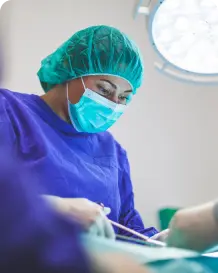Polypectomy Surgery in Bangalore
Polypectomy is a non-invasive surgical procedure to remove polyps from certain organs, such as the colon, uterus, gallbladder, or stomach. Colon polyps are the most common polyps that require surgical removal during colonoscopy. K... Polypectomy is a non-invasive surgical procedure to remove polyps from certain organs, such as the colon, uterus, gallbladder, or stomach. Colon polyps are the most common polyps that require surgical removal during colonoscopy. Know all about polypectomy management in Bangalore. Read more
Happy patients
 50+
50+
Expert surgeons
Personal Assistance







